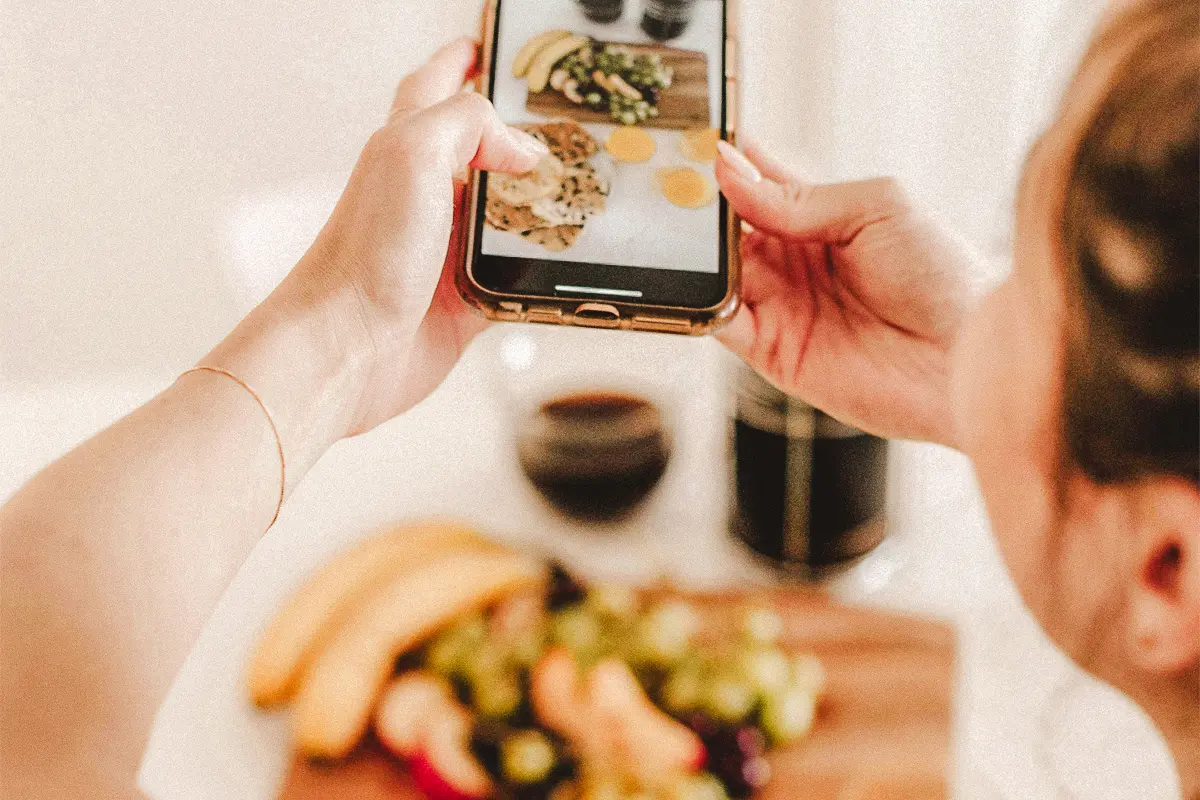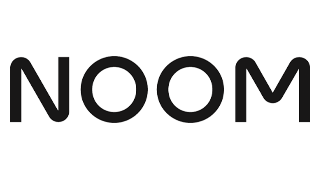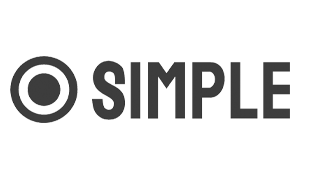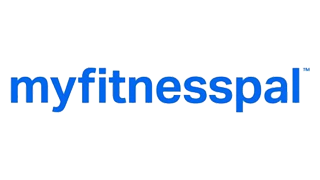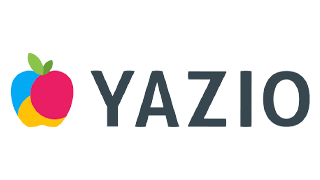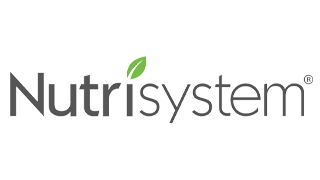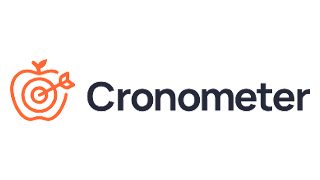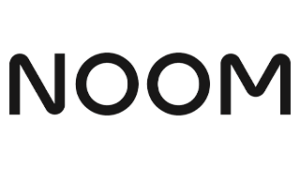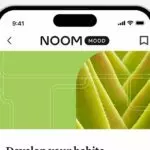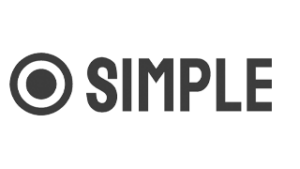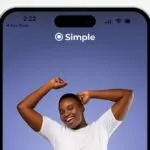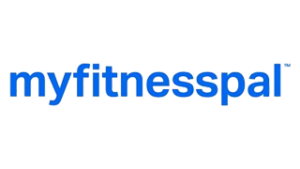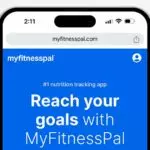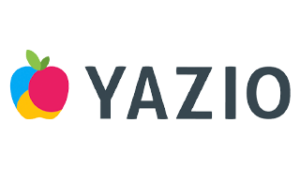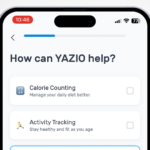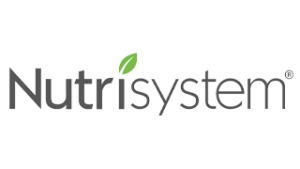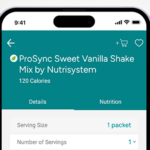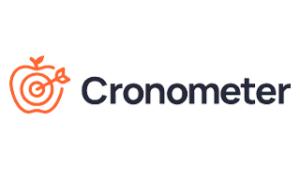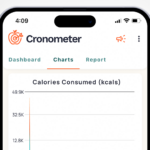Table of Contents
Healthy eating can help lower your risk for health issues like heart disease or type 2 diabetes and can help you live longer. But eating healthy isn’t always easy. Not only can it be difficult to adjust to a new lifestyle, but it can be expensive and inconvenient.
Nutrition apps can be a great tool for overcoming some of those barriers. We researched and tested 12 nutrition apps to find out which ones offer the best tools and education for nutrition. These apps have features like food and nutrient tracking, personal coaching, and nutrition lessons, and some of them also appear in our review of the best weight loss programs. Read below to find out which app is right for you and your needs.
Best nutrition app overall
The Noom app provides daily lessons on nutrition, habits, and overall health and wellness. By combining nutrition education with psychology, their approach allows users to identify habits and learn how to make more informed food choices.
Our picks for best nutrition apps
- Noom: Best overall
- Simple: Best free nutrition app
- MyFitnessPal: Best selection of plans
- YAZIO: Best app to track nutrition
- Numi: Best app for nutritionally balanced meals
- Cronometer: Best calorie-counting nutrition app
HelpGuide Handbook’s nutrition app testing methodology
By becoming familiar with the websites and apps and using them ourselves, we are able to gain a detailed view of how easy, or difficult, it is to incorporate the program into a daily routine.
Participating in online member communities and coaching sessions gives us insight into the type of support each platform offers. And our focus groups and interviews with doctors, dietitians, nutritionists, and mental health experts help us learn more about the connections between nutrition, weight loss, physical health, and mental health.
One detail we focus on is the sustainability of each program or app. A successful weight loss program or nutrition app teaches you how to establish and maintain healthy habits for the long-term.
From our tester
“There is a pattern in our research of people joining and losing weight, falling back into old patterns, regaining weight and coming back full circle.”
Our testing results, experiences of other customers we compile from interviews and surveys, and professional opinions of health experts all inform the conclusions in this review of the best nutrition apps.
For more information, read our healthy living review methodology.
Compare the best nutrition apps in 2024
| Services | Food and activity tracking, daily lessons, and health coaching | AI chatbot, fasting timer, and content library | Calorie counter, recipes, and workout videos | Fasting timer, tracker for food and activity, and recipes | Pre-portioned meals and snacks, health coaching, and tracker for meals and activity | Calorie counter, fasting timer, and log meals, exercise, and health metrics |
| Free version? | No | Yes | Yes | No | No | Yes |
| Devices | iOS, Android, desktop | iOS, Android, desktop | iOS, Android, desktop | iOS, Android, desktop | iOS, Android, desktop | iOS, Android, desktop |
| Monthly cost* | $70 | $29.99 | $19.99 | $8 | $318.60 | $9.99 |
*Monthly cost may be lower if you subscribe to an annual subscription plan.
Best overall: Noom
Our final verdict
Education can create a strong base for a healthy lifestyle, and Noom provides this for its users through daily lessons. Our tester completed daily lessons on Noom for two weeks and found them informative, comprehensive, and practical. The lessons are a small time commitment each day, and they teach you about nutrition, healthy habits, and overall health and wellness. You have the option to read or listen to the lessons in the app.
We like that Noom takes nutrition education a step further by using a psychological approach to develop sustainable habits. Not only will you learn about nutrition, but you will also learn about your habits and mindset around food. For instance, on the sixth day, our tester completed a lesson about different types of eating, which helped her identify her typical eating pattern and learn more about her relationship with food.
From our tester
“The daily lessons take less than five minutes to get through, and they have enough information that I find myself thinking about the content throughout the day. After I learned about the different types of eating, I started paying attention to my mindset around food and eating more intuitively.”
It is hard to find past lessons in the app if you want to revisit the information. One nutritional aspect of Noom that we don’t like is the color-coded food system. The system categorizes foods by color, which can make some foods appear as “good” or “bad.” Labeling foods in this way may lead to disordered eating patterns for some. We are also not impressed by the recipe feature of the app. It is difficult to find a recipe for a specific ingredient or meal in the search function, and the recipes themselves do not offer very thorough instructions.
Best free nutrition app: Simple
Our final verdict
We think Simple is the best free nutrition app because it offers some really useful features, including an AI-powered wellness assistant, Avo, that is even available in the free version of the app. Avo can help you make healthy food choices and come up with meal ideas. Plus, it considers food preferences and allergies and how much time you can dedicate to meal prepping. If you have any questions during your healthy living journey, Avo should be able to help answer them.
From our tester
“I often have a hard time figuring out ideas for dinner when my pantry and fridge are low on ingredients, and I haven’t had the time to go grocery shopping. So I asked Avo for meal ideas that involved the ingredients I did have, and I was so surprised that it provided ideas that included the ingredients I had and were simple and easy to make.”
The free subscription includes many app features, while the paid premium subscription creates a more personalized experience. Similar to the Mayo Clinic Diet, it includes a full library of educational articles on nutrition, health and wellness, and customized recommendations for working toward your nutrition goals. It also offers a daily checklist that our tester finds helpful to keep them accountable to their goals.
We do not like the number of notifications the app sends you at first, but you can turn these off or customize them to your preference in the settings. We also do not like that the app’s initial questionnaire uses language focused on your body shape and type, which could make users feel uncomfortable or discouraged.
Best selection of plans: MyFitnessPal
Our final verdict
One of the best things about MyFitnessPal is that there are numerous plans to choose from that tailor to different individuals and their needs. There is a one-week plan specifically for pregnant people called “Eating for Pregnancy” that aims to provide nutritional guidance and self-care tips. The tips in this program help you learn how certain foods may help with nausea, heartburn, low energy, and other common pregnancy symptoms. There are other plans focused on gut health, preparing for an athletic event, intermittent fasting, and more.
From our tester
“I especially like the diversity in plans that can apply to people of all fitness and ages. There’s a ‘Small Steps’ plan, ‘Eating for Pregnancy’ plan, and one plan focused on sustainable eating called ‘Eat Green.’ I don’t recommend any one plan because I think it’s a different experience for everyone based on their goals.”
MyFitnessPal is similar to certain exercise and weight loss apps like Joggo because it lets you track your meals, hydration, and movement to identify patterns and learn new habits. In the “Eating for Pregnancy” plan, for example, there are modified movement activities that provide tips on how to stay active during pregnancy.
We like that the plans provide you with a checklist of items to do every day. We appreciate features that help us stay accountable toward our goals, and a checklist is a great tool for making sure you’re staying on track. It’s unfortunate that the pregnancy plan only lasts for seven days, but the hope is that you can learn a few nutritional tips that you can carry with you throughout the pregnancy.
Talk to your doctor
MyFitnessPal can be a tool to help you learn and develop healthy eating habits to practice during pregnancy, but you should not rely on the app for your nutritional needs during pregnancy. Talk to your doctor about your specific nutritional needs and limitations because every pregnancy is different.
Best app to track nutrition: YAZIO
Our final verdict
We really like YAZIO’s empathetic and comprehensive approach to healthy living. The app’s overall goal is to help users work toward a healthier lifestyle—whatever that means for each individual user. During the sign-up process, you are asked questions about our personal goals.
We appreciate that we can choose to focus on healthy, holistic goals such as:
- Nutrition.
- Staying motivated.
- Feeling better about our body.
- Eating a balanced diet.
- Being more active.
Many nutrition features are only available in the PRO subscription. However, YAZIO offers one of the most affordable premium subscriptions of the apps we’ve tested, and you may receive a special offer discount when you sign up.
With a PRO subscription, you get a comprehensive breakdown of the nutritional information of the foods you log. You can see calories, carbs, protein, fat, vitamins, and minerals, which break down even further into categories like fiber, added sugar, cholesterol, and more. You can view this information in an easy-to-read pie chart and graph that gives you a great visual of the nutrition in the foods you’re eating. We also like that the app includes a food barcode scanner so you can easily log the foods or ingredients you eat. For items without a barcode, or for meals that involve a lot of different ingredients, adding and tracking each individual item could feel time-consuming for some.
Best app for nutritionally balanced meals: Numi by Nutrisystem
Our final verdict
Numi is the app for Nutrisystem, a program that supplies users with pre-portioned meals and snacks that are nutritionally balanced. Numi is a convenient option for someone who isn’t used to cooking or preparing healthy meals. Our tester found that while the meals may be nutritionally balanced, they weren’t always to their taste. There are a lot of different meal options to choose from, and whether or not you enjoy the taste depends on your preferences. The app also includes access to health coaches for support and advice, which is a great feature for people trying to improve their nutrition and health for the first time.
From our tester
“For lunch, I tried the chicken grain bowl, which I microwaved from frozen. I was pleased to find beans in this dish as they are a nutritional powerhouse. The dish was tasty, and the carrots maintained their crunch.”
We don’t recommend the program for long-term sustainable weight loss. While you may be able to lose weight while on the program, it’s unlikely that you will use Nutrisystem for the rest of your life. We recommend gathering inspiration from Nutrisystem’s meals and recipes so you can eventually work toward making your own healthy, balanced meals. If you are new to healthy cooking and value convenience, Nutrisystem might be a good choice for you. Our testers say that you should be prepared for microwave meals and options that are quick to prepare versus gourmet meals or fresh ingredients.
Best calorie-counting nutrition app: Cronometer
Our final verdict
The Cronometer app breaks down the calories you consume, the calories you burn, and the calories remaining for your daily allotment. This simplistic approach can help users understand their calorie intake and activity levels. You can log your meals, hydration, and any activities you participate in throughout the day. With the Gold plan, you can track up to eight different nutrition scores from the food that you log. There are also custom nutritional charts that allow you to see specific data points that you track over time. For example, you can create a chart to show your macronutrient values over the past week, or you can view a single nutrient in a chart.
You can log your food manually by searching for the food item in the Cronometer database or by using the food barcode scanner. Either way, the nutritional information is automatically added for you. For some meals or foods, you may have to input ingredients separately, which can be tedious and time-consuming, but you have the option to favorite items to save you time later.
From our tester
“Tracking store-bought food like Kraft Mac and Cheese is easy because you can just scan the barcode on the box, and it inputs all the nutrition info for you. But if it’s something you make, like coffee with creamer, for instance, you need to input both the coffee and the creamer separately.”
One feature we don’t like about Cronometer is that you can only contact customer service through email. A chat option or telephone number would be better for getting fast answers to questions.
Another app to consider
Future
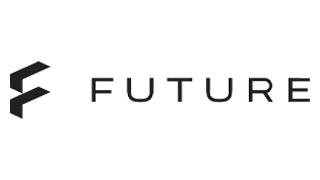
While Future is a fitness app, there are certain coaches available who can help you with nutrition, too. Some coaches have certifications in both fitness and nutrition, and you can choose your own coach who aligns with your wellness goals. These coaches can provide high-level nutrition guidance and set macronutrient guidelines based on your needs and goals. The combined customized fitness training plan with the nutrition guidance creates a highly personalized and comprehensive healthy living plan.
Frequently asked questions
A good, free nutrition app contains features like meal and activity tracking, health coaching, and recipe or activity recommendations. If you’re looking for a good and free nutrition app, consider downloading platforms like Simple, MyFitnessPal, or Cronometer.
A diet or nutrition app can provide support, tools, and guidance toward your goals, but it may not necessarily help you lose weight. Apps that have health coaches and trackers will be more successful at improving weight management. For the best nutrition guidance, talk to a health care provider.
The best nutrition apps are Noom, Simple, MyFitnessPal, Future, YAZIO, Numi, and Cronometer. Which app is best for you will depend on your specific nutrition needs and health goals.



